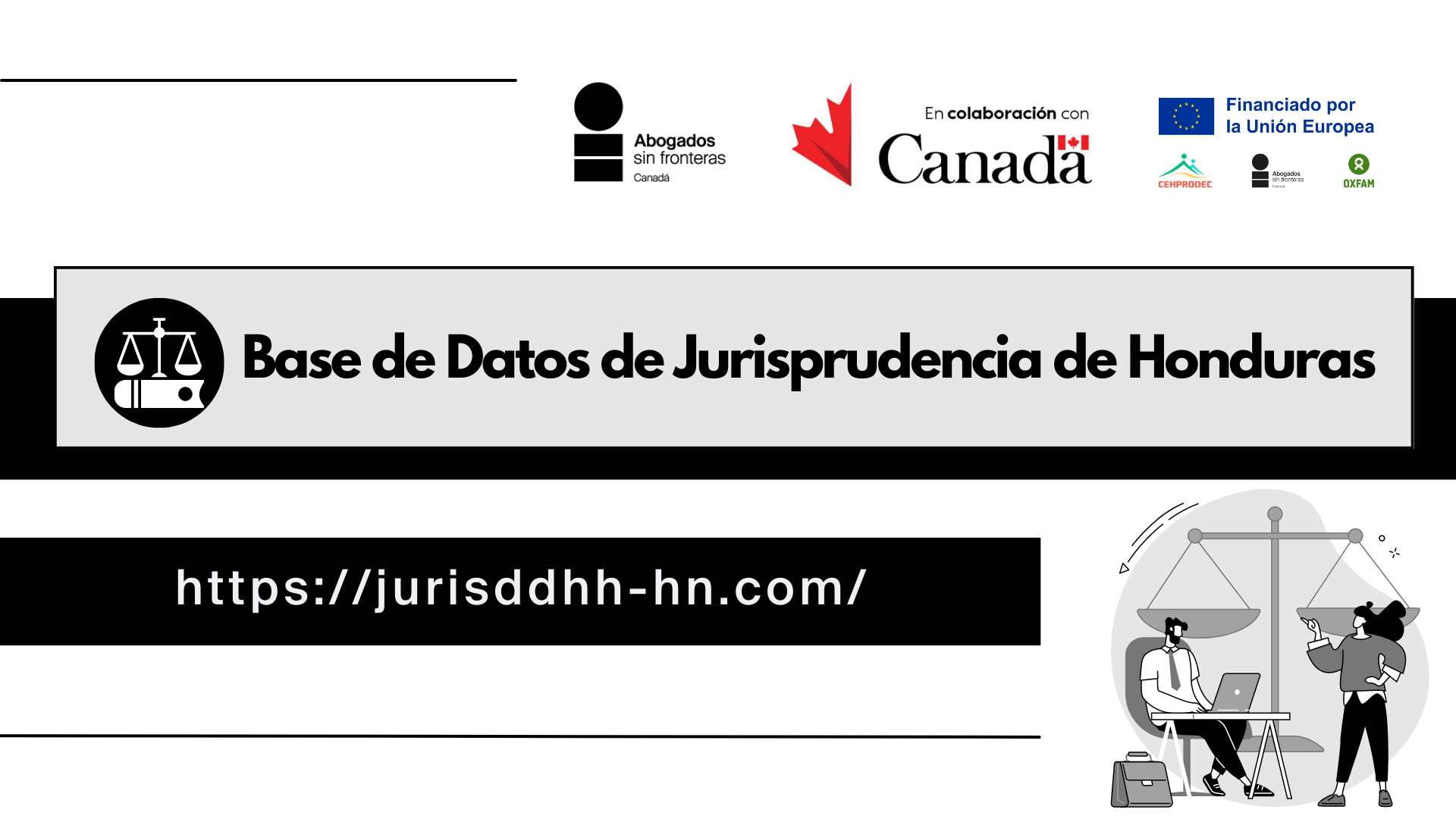
A tool for defending human rights and developing legal knowledge
Lawyers Without Borders Canada (LWBC) recently launched the Honduran Case Law Database, a platform containing more than 1,600 judgments issued by the Supreme Court of Justice (CSJ) of Honduras.
This platform, hosted on https://jurisddhh-hn.com, is the result of LWBC’s commitment to promoting access to justice in the country. It is an essential resource for lawyers and human rights defenders as it provides an important piece of legal framework, while its intention is to strengthen the advancement of the law in Honduras through legal research.
What is a case law database for?
You could say that case law is like a collection of decisions or a blueprint that helps to understand how the law has been applied in different situations and gives people an understanding of how laws have been interpreted in the past and what to expect from a court. In other words, the decisions of judges in the past become clues for future cases.
For example, a lawyer could use the database to access relevant court decisions to help build sound and strategic arguments, learn how a particular law has been interpreted, how a certain type of evidence was assessed or how investigations have been conducted in corruption cases.
It may also be useful to understand how progress has been made in guaranteeing rights and respect for human dignity, or assist a civil society organisation’s advocacy and awareness-raising efforts.
Or it could benefit an interested law student conducting research and analysis on how courts have interpreted and applied constitutional provisions in different situations.
An innovative tool in Honduras
The Case Law Database initially started with the review of similar platforms of different constitutional courts in Latin America, identifying characteristic elements in their search systems, thematic indexes, and jurisprudential lines in order to develop a tool that would correspond to the Honduran legal culture.
Following this step, more than 1 500 rulings issued by the Constitutional Chamber of the Supreme Court mainly between 2018 and 2021 were collected, analyzed and systematized. Rulings from both previous and more recent years can also be found.
“This tool is unique in its kind with regard to the review in comparative law, given that it is an effort from a citizens’ perspective and not from the courts themselves,” explained Ana Pineda, a lawyer specializing in constitutional law, criminal law and criminal procedural law in charge of this stage of development.
“I believe that this tool, by allowing access to important sentences, is a tribute to the victims of human rights violations, to their families, to the organizations that for years and decades have been forging paths for social progress in Honduras,” said Gustavo García Andrade, a lawyer specializing in international law and humanitarian action who has been a volunteer legal advisor at LWBC and a human rights officer with the United Nations Stabilization Mission in the Democratic Republic of the Congo (MONUSCO).
The Honduran Case Law Database is the result of the “Governance, Justice and the Fight against Impunity in Honduras (JUSTICIA)” project, funded by the Government of Canada through Global Affairs Canada (GAC), and includes over 1,500 judgments handed down by the Constitutional Chamber.
Its coverage has recently been extended to include judgments relating to corruption and extractivism in the administrative, criminal and constitutional spheres. This is an example of collaboration between international cooperation initiatives, with an effort carried out as part of the “Honduras with Rights” project, implemented by the Honduran Center for Community Development (CEHPRODEC), ASFC and OXFAM, with funding from the European Union through the Program to Support Human Rights and Democracy in Honduras (ProDerechos).